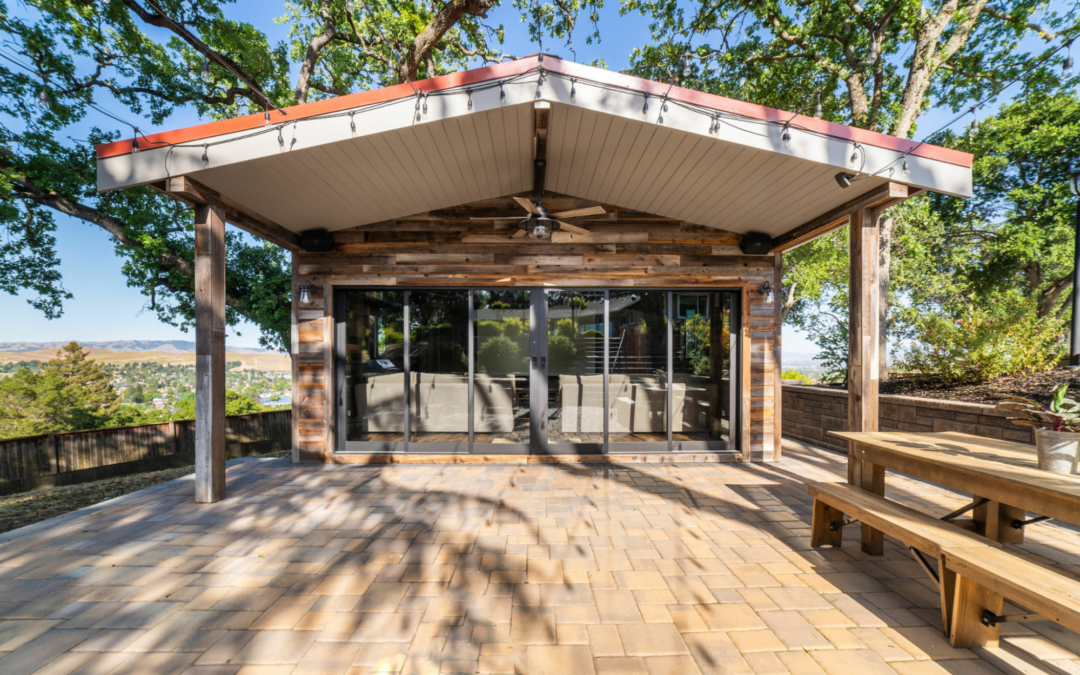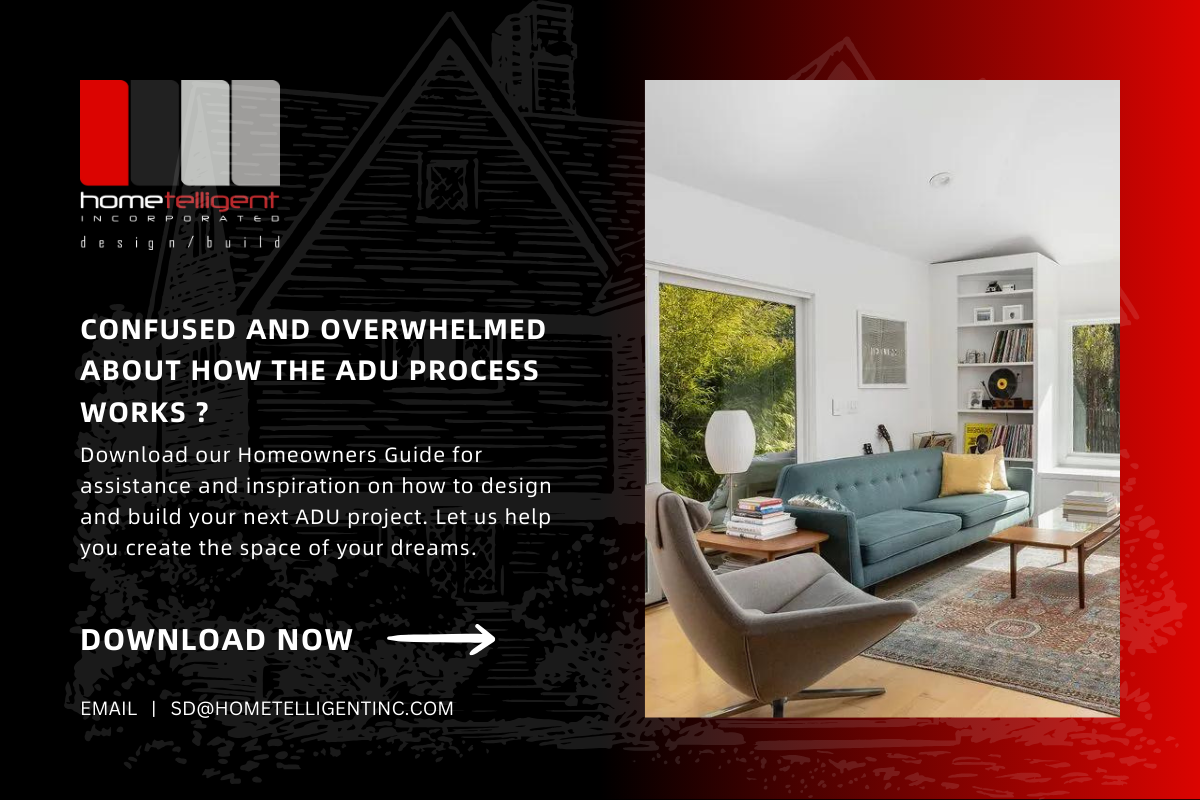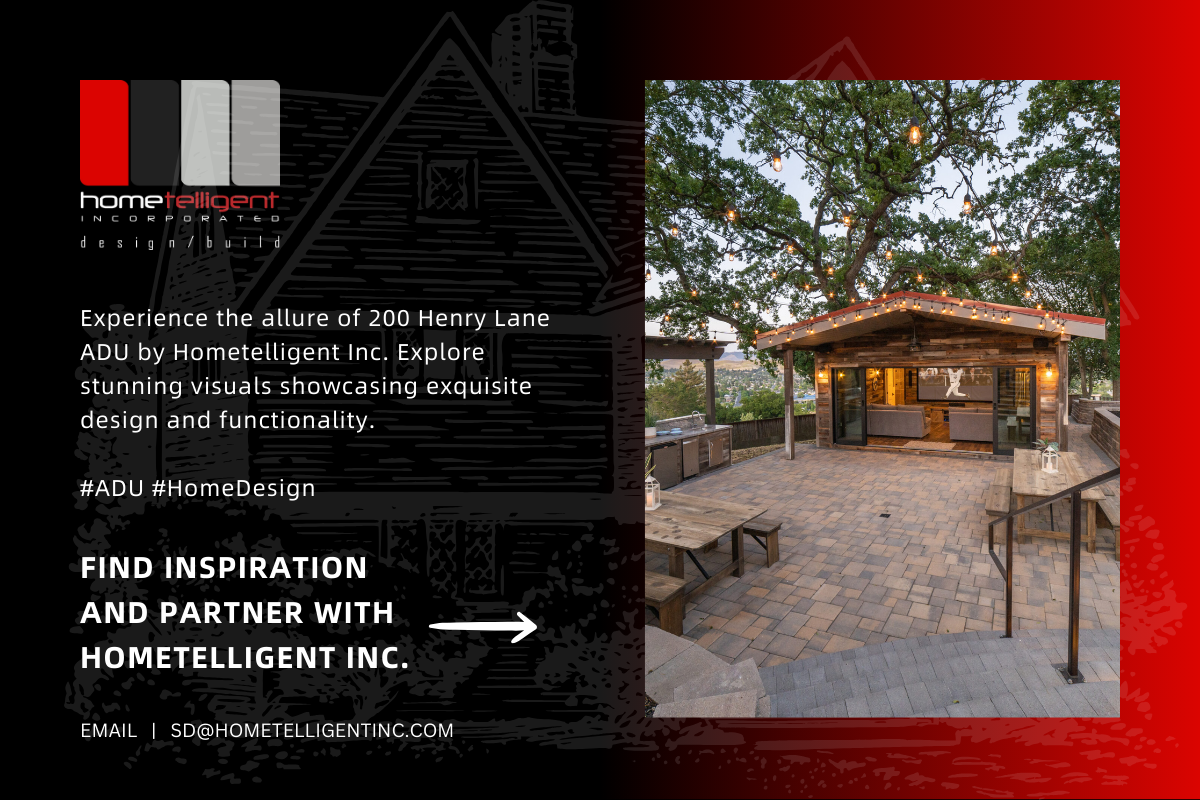Accessory Dwelling Units (ADUs), commonly known as granny flats or in-law units, offer a versatile and accessible way to explore new possibilities for your property. Whether you envision a stand-alone suite, a cozy granny flat, an attached addition, or an outdoor office, ADUs offer a practical solution to maximize your living space and generate additional income. These adaptable housing options can breathe new life into unused areas of your property, transforming them into valuable assets.
Read on to gain a comprehensive understanding of ADUs, their benefits, and the considerations involved before venturing into this exciting endeavor.
What is an Accessory Dwelling Unit?
An accessory dwelling unit or ADU refers to a secondary housing unit built on a single-family residential property. These dwelling units exist independently of the primary residence, usually in the form of a converted garage, a separate building, or an added extension to the main house. ADUs have gained popularity in recent years due to their flexibility in accommodating various living arrangements.
Understanding Accessory Dwelling Units (ADUs)
ADUs serve as independent living spaces, complete with their own kitchens, bathrooms, and living areas. They offer homeowners the opportunity to create additional housing options within their properties, catering to diverse needs such as housing aging family members, creating rental income streams, or expanding living spaces.
Different Types of ADUs
There are various forms of ADUs, each designed to suit different needs and property layouts. Some common types include detached ADUs, attached ADUs, and interior ADUs, each with distinct characteristics and advantages depending on available space and zoning regulations.
Does an ADU Add Value to Your Home?
The addition of an ADU can significantly impact your property’s value. Studies have shown that homes with ADUs often command higher market prices and increased demand due to their added flexibility and functionality. However, the extent of value addition can vary based on factors such as location, size, and the quality of construction.
What are the benefits of ADUs?
ADUs offer a multitude of advantages, making them a valuable addition to any property. These versatile units can serve a variety of purposes, from providing additional housing options to generating rental income.
Generate Rental Income
One of the most compelling benefits of ADUs is their potential to generate rental income. By renting out your ADU, you can create a steady stream of passive income that can supplement your regular earnings or help cover mortgage payments. This additional income can be particularly beneficial for homeowners on fixed incomes or those seeking to reduce their financial burdens.
Accommodate Multigenerational Living Arrangements
ADUs can also play a crucial role in accommodating multigenerational living arrangements. With an ADU on your property, you can provide housing for aging parents, adult children, or other family members. This allows families to stay close while maintaining their independence and privacy.
Provide Space for Home Offices or Creative Studios
In today’s remote work environment, ADUs can be repurposed as home offices or creative studios. These private, well-equipped spaces offer the perfect setting for focused work or creative pursuits.
Enhance Property Value
The addition of an ADU can significantly enhance the value of your property. When it comes time to sell, potential buyers will be attracted to the extra living space and the potential for rental income.
Increase Density and Reduce Sprawl
ADUs can help to increase density in urban areas, reducing the need for sprawl and promoting more sustainable development patterns. By utilizing existing infrastructure, ADUs minimize the environmental impact of new construction.
Promote Social Mix and Affordability
ADUs can foster a more diverse and inclusive community by providing housing options for people of different ages, incomes, and backgrounds. This can help to break down social barriers and create a more vibrant and welcoming neighborhood.
Offer Flexibility and Adaptability
ADUs are highly flexible and adaptable, allowing them to be customized to meet the specific needs of homeowners and tenants. Whether you’re looking for a rental unit, a home office, or a space for multigenerational living, ADUs can be tailored to fit your requirements.
Accessory Dwelling Units (ADUs) Pros and Cons
While ADUs offer a plethora of advantages, such as increased flexibility and potential financial gains, they also present certain considerations that require thorough evaluation.
1. Zoning Regulations and Permits:
ADUs may be subject to your area’s specific zoning regulations and permit requirements. Researching and understanding these regulations before proceeding with an ADU project is crucial.
2. Construction Costs:
The construction of an ADU can involve significant upfront costs, including materials, labor, and permits. It is essential to factor these costs into your budget and ensure you have the financial resources to complete the project.
3. Property Management Responsibilities:
Renting out an ADU involves property management responsibilities such as tenant screening, maintenance, and rent collection. These responsibilities require time, effort, and potentially additional costs.
4. Potential Legal and Regulatory Challenges:
ADUs may face legal and regulatory challenges, particularly in areas with restrictive zoning ordinances or tenant protection laws. It is advisable to consult with legal and real estate professionals to ensure compliance with local regulations.
Before You Get Started
Before undertaking your ADU project, it’s essential to lay the groundwork for success. This involves understanding local building codes, securing necessary permits, and carefully assessing your budget and timeline. Reflecting on your motivations for building an ADU will also help align your goals with the intended outcomes.
Reflecting on Your Motivations: Key Points Before Building an ADU
Understanding why you want to create an ADU is essential. Whether it’s for rental income, housing family members, or expanding your living space, clarifying your objectives will guide the design, layout, and functionality of your ADU.
Innovative Ways to Utilize Your Additional Dwelling Unit (ADU) Space
Once your ADU is complete, explore innovative ways to maximize its potential. From transforming it into a cozy guest suite to establishing a tranquil home office or a creative workshop, the possibilities are endless.
In conclusion, accessory dwelling units offer a versatile solution to housing needs, providing homeowners with increased flexibility, potential rental income, and the opportunity to enhance property value. By understanding the nuances of ADUs and carefully considering their implementation, homeowners can make informed decisions that align with their goals and maximize the potential of their properties.
For personalized advice or assistance in planning your ADU project, contact our expert team. Remember, ADUs can be transformative, but thorough research, planning, and adherence to local regulations are key to a successful and rewarding ADU project.




